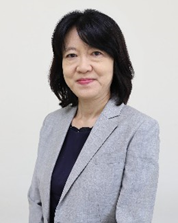Panel 1:
What Is Your COVID Story? JMMR Special Issue on COVID-19
Michael D. Fetters (University of Michigan)
In March 2020, JMMR issued a call for papers for a special issue on novel methodological approaches to address the catastrophic social changes associated with the COVID-19 pandemic. The disruption of every social institution by the pandemic—everyone has a COVID story—highlights the need to harness the power of mixed methods research. In July, 2021, the Special Issue featured seven innovative mixed methods methodological studies based or conducted in the United Kingdom, Somalia, the US, Canada, Hong Kong, and Japan. The researchers’ affiliations included politics, international studies, public health, education, evaluation, educational psychology, life sciences communication, family medicine, information science, nursing science, pulmonary medicine, economics, kinesiology, sports, and recreation studies. These studies illustrate innovations from use or integration of SMS radio messaging, genetics research, social media, complexity theory, telemedicine, and digital analytics using computational research, text mining, and natural language processing. The Special Issue authors illustrate advances using complexity theory and a “compound mixed methods” design, longitudinal mixed methods case study, and methodological bricolage or “agile mixed methods”. This milestone Special Issue showcases the strength of mixed methods research and strides in methodological innovation as a beacon of hope for addressing COVID-19 and other grand challenges of the world.
Michael D. Fetters, MD, MPH, MA

|
Michael D. Fetters is Professor of Family Medicine and Director of the Mixed Methods Program at the University of Michigan. He received his M.D. from Ohio State University, his M.P.H. from the University of North Carolina,
Chapel Hill, and his M.A. from Michigan State University. Dr. Fetters’ research focuses on the influence of culture on medical decision making, cancer communication, and health services research. His qualitative and mixed methods research interests focus on methodology, particularly integration and applications of mixed methods research. He serves as Co-editor in Chief, Journal of Mixed Methods Research. He authored the Mixed Methods Research Workbook (Sage, 2020). His co-edited book with Hisako Kakai, The Mixed Methods Research Treasure Hunt is now available (Tomishobo, April 2021).
|
|



